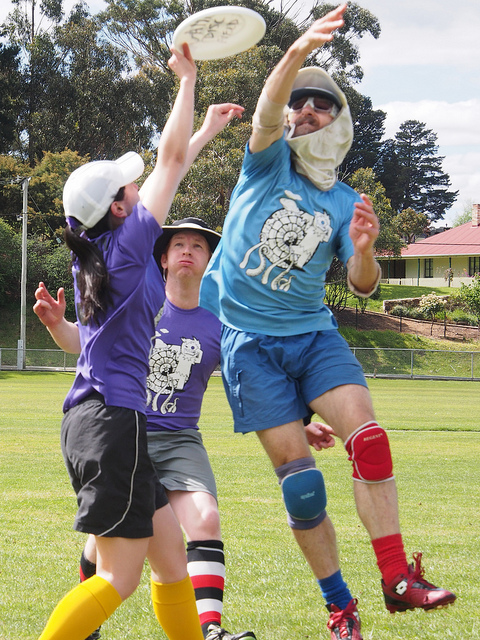 Just finished reading Assessment for Whom: Repositioning Higher Education Assessment as an Ethical and Value-Focused Social Practice (Wall, Dursch, and Rogers, 2014) and my mind is whirring. As you may know, I’ve been in the field of assessment for just about two years now – before that I was in nonprofit evaluation, and before that, academia as an assistant professor. Getting to know assessment, while simultaneously explaining assessment to others, has sort of been like bringing a new guy onto your ultimate frisbee team when you’re not really sure if you, yourself, actually like him yet or not. But you were short a player and you know he’s got the goods, so you do your best.
Just finished reading Assessment for Whom: Repositioning Higher Education Assessment as an Ethical and Value-Focused Social Practice (Wall, Dursch, and Rogers, 2014) and my mind is whirring. As you may know, I’ve been in the field of assessment for just about two years now – before that I was in nonprofit evaluation, and before that, academia as an assistant professor. Getting to know assessment, while simultaneously explaining assessment to others, has sort of been like bringing a new guy onto your ultimate frisbee team when you’re not really sure if you, yourself, actually like him yet or not. But you were short a player and you know he’s got the goods, so you do your best.
My first impression of assessment, and therefore the one I passed on to others, was that it was a lot like social science research. But instead of exploring whether people feel like they belong in their workplaces (my area of research), we were exploring whether students learn in (or outside) their classrooms. Easy enough! But then I went to my first assessment conference and hello jargon! Bloom’s? Rubrics? Outcomes? What was all this? As Wall, Dursch, and Rogers argue, assessment is currently having a love affair with technique. We all know we need to do it, so let’s focus on how to get it done.
But my social science research brain has never been satisfied with that question. What about its meaning? What about its purpose? Why are we doing this thing? Wall, Dursch and Rogers tackle these questions by highlighting the political-historical context of assessment, including the danger of tying it to “accountability mechanisms that chip away at, and eventually tear down, institutions in order to rebuild them based on a model that serves the interest of global capitalism.” (Wow! Tell us how you really feel!)
They then aim to “reconstruct assessment for the public good” by contextualizing it within pedagogical practice and setting forth Five Foundational Responsibilities of Individuals Conducting Assessment:
- Acknowledge the ethical nature of the work
- Make transparent the purpose of assessment
- Make transparent who is part of the process, and who is not
- Use methods that attend to context
- Make interpretative judgements rather than let data speak for itself
Attending to those responsibilities will turn assessment into “a place of inclusive, sustained, and informed dialogue, not one that is simply a technical and procedure process that strives for validity rather than purpose and transparency.” That’s pretty inspirational.
So here’s where I send a shout out to Hunter’s metaphorical ultimate frisbee team, working to incorporate the new guy, despite his faults, in exactly this way. To all our great faculty – including our Assessment Fellows, the Assessment Advisory Board, and the Senate Committee on Academic Assessment and Evaluation – hey, we’re onto something!
Image credits:
Ultimate frisbee by Stewart Wilde. Used under a Creative Commons license.


